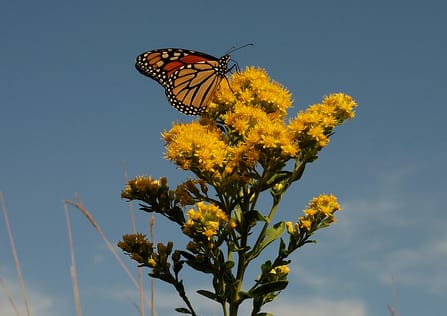[This action alert is over.]
Comment to the National Organic Standards Board (NOSB) by April 4
Regulatory loopholes permit destruction of the environment in pursuit of profit, and lack of enforcement by the USDA allows fraudulent imports to pollute the organic marketplace.
ORGANIC AGRICULTURE SHOULD PROTECT, NOT DESTROY, PRISTINE ECOSYSTEMS
 |
Although organic agriculture is intended to promote and enhance biodiversity, organic regulations do not explicitly protect sensitive native ecosystems from being converted to organic production—in fact, they incentivize it!
Unlike farmland which has to forgo agrichemicals for a minimum of three years before transitioning to organic production, investors can take wild forests, grasslands, and other native ecosystems and plow them up, turning them into agricultural land that then qualifies for organic certification immediately.
Now the NOSB is considering some additional regulatory language that will help stop organic producers from destroying valuable native ecosystems. This move is both needed and overdue; these additions to organic regulations are important to prevent more valuable wild ecosystems from being turned into agricultural lands.
Encourage the NOSB to adopt these changes because:
- Organic producers and their certifiers need clear regulatory guidance to support transitioning the right land into organic production; and,
- Native ecosystems provide valuable services to society, including flood control, water and air filtration, and habitat for wildlife, including beneficial species.
Tell the NOSB to support the addition of clear language in the organic regulations to eliminate any incentive to convert native ecosystems to organic production.
FRAUDULENT ORGANIC IMPORTS INJURE ETHICAL U.S. FARMERS AND DEFRAUD CONSUMERS
 |
Recent investigations have shown material flaws in the USDA’s oversight of imports of organic grains, undermining confidence in the organic label and harming domestic organic grain farmers. Now the NOSB is seeking input on what actions would increase integrity in global organic control systems. This move to stop bad actors from destroying domestic organic grain markets—cheating us all out of the organic food we pay a premium for—is long overdue.
Loopholes in current import regulations include:
- Exemptions for several types of operations from organic certification, including some importers, brokers, and handlers.
- No requirement that the USDA test large imports of bulk commodities shipments from high-risk countries.
- No directive that certifiers or the National Organic Program collect, report, or reconcile data on organic acreage and yields for grains grown overseas (one important method that could identify fraud).
Tell the NOSB to support clear language in organic regulations to eliminate the entry of fraudulent organic imports by requiring certification of all entities in the supply chain, targeted testing, and rigorous reporting requirements.
Post your comments online today—deadline April 4, 2018
- Go to the comment form at regulations.gov.
- Write directly in the space provided, cut and paste your comments, or attach a separate document. Sample bullet points, which you can customize and paste into the regulations.gov website, can be found here.
- If you are an organic farmer, or are professionally involved in the organic industry, please be sure to mention that! Comments from organic consumers are vitally important as well, especially if you tell regulators why you care.
- To learn more about these issues:
- Read The Cornucopia Institute’s Fall 2017 comments to the NOSB supporting the Wild Farm Alliance’s (WFA) efforts on the native ecosystem issue;
- Read The Cornucopia Institute’s current comments on the imports issue;
- Read the WFA action alert regarding native ecosystems; and,
- Find the full proposal and NOSB meeting materials here.
Please tell the USDA that you support The Cornucopia Institute’s comments encouraging enhanced regulatory oversight of imports and the protection of high-value lands.

